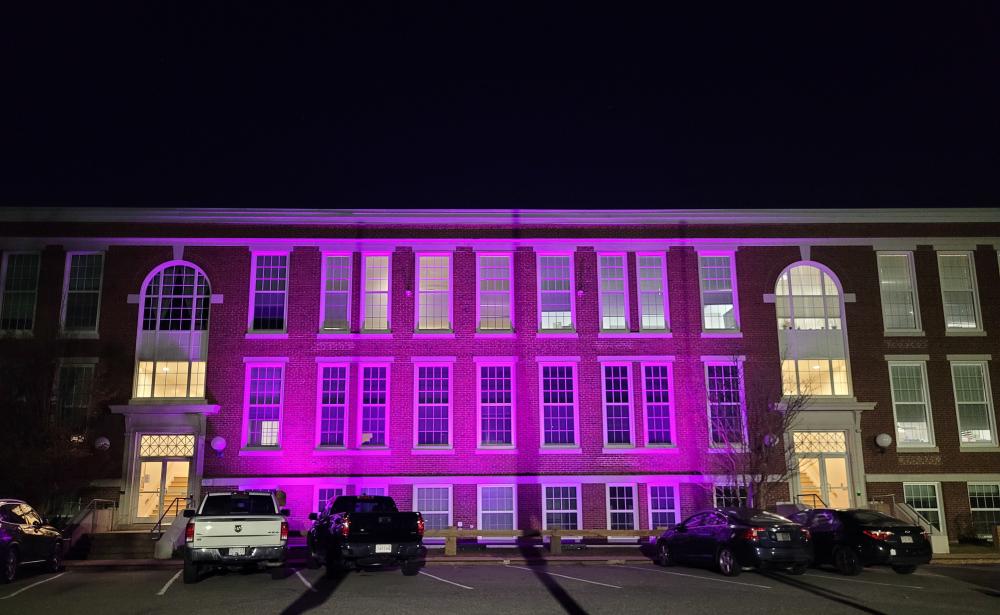Dartmouth resident sheds light on pancreatic cancer
Back in 2013, Dartmouth’s Brock Cordeiro returned home from some meetings in Boston when he noticed his father’s unusual absence.
As it turns out, Norman Cordeiro had gone to St. Luke’s Hospital, where he spent a few days undergoing testing that would lead to his pancreatic cancer diagnosis.
Brock said his family was hopeful at first, with doctors suggesting a Whipple procedure, which only a few patients qualify for because the cancer has to be localized enough.
However, when Norman went in for the procedure, doctors realized the cancer had already spread far beyond what was operable.
Norman was given six months to live. He lived for six months and 12 days.
At the time, the survival rate for pancreatic cancer was around 6%. It sits at the number two spot for deadliest cancer in the state and third across the nation, with 73% of people dying within a year of diagnosis. Though it is relatively rare, it makes up 3% of all cancers in the U.S.
The survival rate has since gone up to 13%, but Brock imagines a future when 20% to 25% of patients survive, which is why he has made it his mission since then to raise awareness about the disease.
Some may have noticed the Town Hall lighting up bright purple this month and that’s because the Select Board has continued to join Brock in shedding light on this disease, with November being Pancreatic Cancer Awareness Month.
Additionally, the town has shared a proclamation in support of raising awareness of the disease.
With his father having lived in Dartmouth since the 1970s, Brock said he “takes pride” in the town’s support.
“I always thought pancreatic cancer was horribly overlooked,” Brock said. Additionally, he highlighted the stigma around the cancer, which he assumes is due to the high mortality rate.
Because of where the pancreas is located, signs and symptoms don’t start appearing until the cancer has already progressed, he explained, and even then, the symptoms are vague.
Early detection is key for this cancer, but there is no diagnostic test, such as a blood test, at this time beyond observation, such as imaging and biopsies, Brock said.
“That’s really the saving grace of pancreatic cancer,” he said. “If you’re able to catch it early, there are success stories.”
This is why he believes raising awareness is so important, and the work doesn’t end in Dartmouth.
Brock has worked with state legislators and various cancer societies, including the American Cancer Society Cancer Action Network and Pancreatic Cancer Action Network, creating the Special Legislative Commission to Study Pancreatic Cancer back in 2018.
Modeled after the one created for ovarian cancer, the commission aimed to better understand the prevalence of pancreatic cancer, to create screening and prevention programs,to provide recommendations for additional legislation and to support programs and resources needed. The Commission published a report in October 2019 with recommendations for the legislature.
Additionally, legislation has been filed to implement the recommendations of the Special Commission in both the House and the Senate. The act aims to reduce incidence and death from pancreatic cancer and was sent to study in the 2023-24 legislative session.
Brock emphasized that this is a nonpartisan effort, with the work of both the red and blue parties creating the purple light that shines on pancreatic cancer.
He said he encourages everyone to talk to their doctor about whether pancreatic cancer is something they should be watching for.
He said he personally found out recently that he’s diabetic. This, coupled with his family history, makes him more likely to develop pancreatic cancer.
Though his doctors believe he is OK at this time, he said he feels better knowing he’s being proactive about his health, which is hard for him given his medical phobias.
“Most people have an ignorant bliss, and unfortunately, when that ignorance is dispelled by a diagnosis, it goes from bliss to an utter tragedy,” Brock said.













